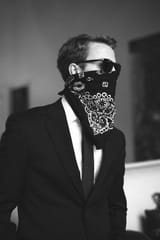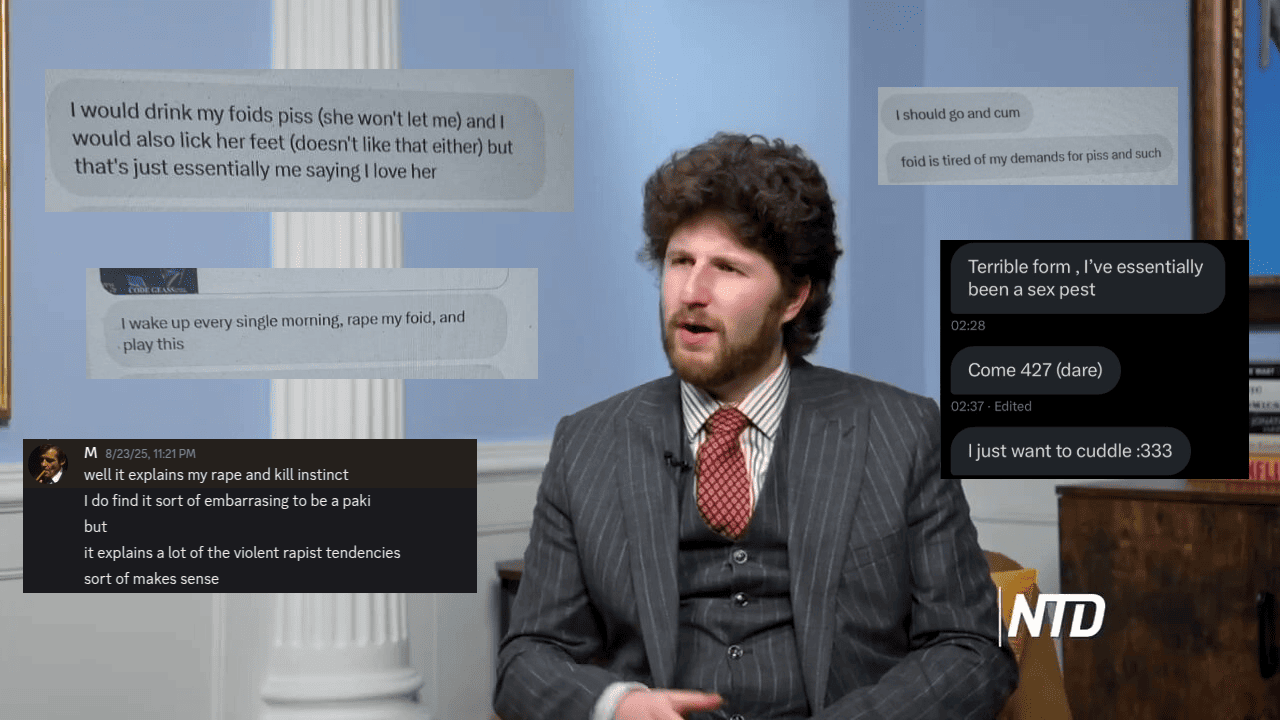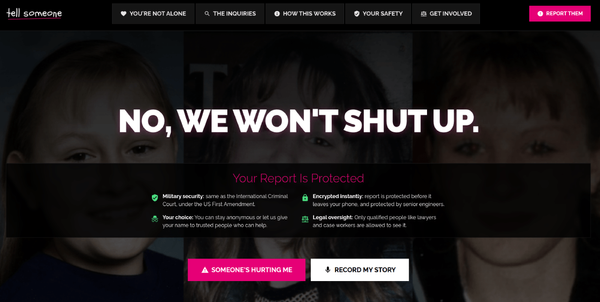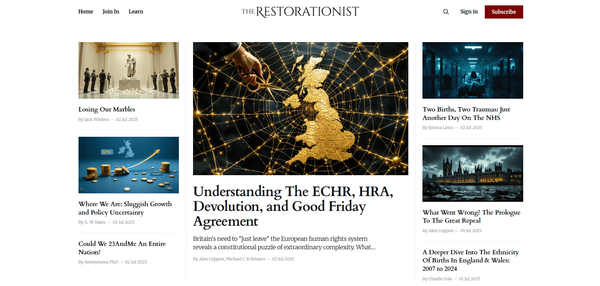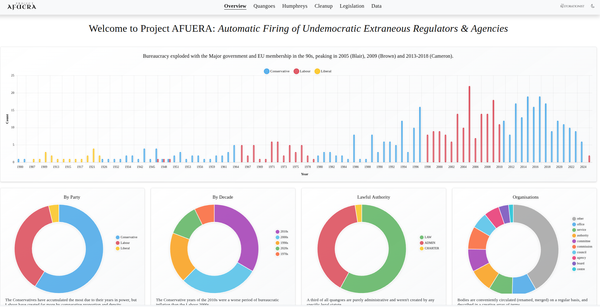Western Civ And How Teachers Made The West A Taboo

In the late eighties, a trend emerged from universities out of an evil trifecta: a) the collapse of the alternative communist society; b) rebellion against "Western Civ", and c) the adoption of "critical pedagogy" in teaching. Suddenly, a chilling era of "political correctness" descended from the humanities, prompting the "Science Wars" and state-employed teachers stigmatising their students' faith in their own countries.
1959: The Two Cultures
British scientist and novelist Charles Percy Snow gave an influential lecture at Cambridge before the Cultural Revolution of the 60s where he argued science and the humanities, which represented "the intellectual life of the whole of western society", had become split into "two cultures" and that this division was a major handicap to both in solving the world's problems. He published "The Two Cultures and the Scientific Revolution".

He said, as documented in FarLeftipedia:
"A good many times I have been present at gatherings of people who, by the standards of the traditional culture, are thought highly educated and who have with considerable gusto been expressing their incredulity at the illiteracy of scientists. Once or twice I have been provoked and have asked the company how many of them could describe the Second Law of Thermodynamics. The response was cold: it was also negative. Yet I was asking something which is the scientific equivalent of: 'Have you read a work of Shakespeare's?'
I now believe that if I had asked an even simpler question – such as, What do you mean by mass, or acceleration, which is the scientific equivalent of saying, 'Can you read?' – not more than one in ten of the highly educated would have felt that I was speaking the same language. So the great edifice of modern physics goes up, and the majority of the cleverest people in the western world have about as much insight into it as their neolithic ancestors would have had."
This bizarre battle was played out in the 60s and reached its pinnacle in the 80s.
1985: The Communist Dream Finally Dies
Until "The Gulag Archipelago" appeared in 1973, a sizable portion of the West's lunatic left were under the delusion the communist utopia - the dialectical opposite of capitalist America - had largely been achieved, albeit imperfectly due to the brutality of Stalin. The USSR was an equivalent superpower, proving a different world was possible and America wasn't the only answer to geopolitical force and economic might. This counter-culture illusion was shattered by Solzhenitsyn's careful annotation of Soviet brutality.

12 years later, Gorbachev was struggling to hold the pieces together of a civil war raging in Afghanistan, Estonia, Lithuania, and other Baltic states, as he pursued policies of perestroika (restructuring) and glasnost (openness). Cuba and North Korea saw their support chain collapse, prompting starvation and poverty. The Berlin Wall was broken down in 1989, and by the end of 1991, after almost 80 years, the utopia had officially dissolved into 15 different republics.
The USSR was seen as the antithesis of American capitalist democracy, representing a fundamentally different way of organising society, economy, and government; an alternative path to modernity, based on socialist principles rather than free-market capitalism. Western leftists were attracted to Soviet ideals of equality and workers' rights, especially during times of economic hardship in the US and the UK. The existence of this "alternative" allowed them to criticise their own society by comparison, particularly regarding issues Stalin inflamed by design, such as racial segregation. Several 60s terrorists (Catherine Marie Kerkow, Elizabeth Anna Duke, etc) fled to utopias like Cuba, as many intellectuals (Cambridge Five, etc) fled to Moscow.
For the militantly-communist, horribly-underpaid faculty rooms of the humanities' departments in US universities, all hope was lost. The Great Alternative was a lie.
1987: Hey Ho, Western Civ Has Got To Go... And Be Replaced By Lunatic Sociology
At Stanford University in the US, things got heated. The New York Times published an article on Jan. 19, 1988 with the headline “In Dispute on Bias, Stanford Is Likely to Alter Western Culture Program.” Jesse Jackson had led 500 students in a march around the campus protesting the requirement undergraduates take a course in Western Civilization, which they denounced as "Eurocentric, white-male indoctrination" and led with the cry “Hey hey, ho ho, Western culture’s got to go.”. It was the first major attempt to "cancel" Western influence in education after the insanity of the 1960s.

Starting in the 1930s, many universities, including Stanford, established general education programs in “Western Civ,” as they came to be known. The impetus for these programs lay less in the overt defense of white supremacy, and more in the fear of communist and fascist takeovers in Europe and Asia. While these programs had their own ideological biases, critics in the 1970s and 1980s focused mostly on the homogeneity of its canon. The accusation that only “dead white males,” European or American, were taught in Western Civ led to its dismantlement at most selective institutions. Stanford was at the epicenter of these debates, with the Reverend Jesse Jackson leading students across campus, chanting “Hey hey, ho ho, Western Culture’s got to go” (referring to the course with that name). By the summer of 1988, it was no longer offered.
https://hedgehogreview.com/web-features/thr/posts/in-the-ruins-of-western-civilization
Stanford replaced "Western Culture" with "Culture, Ideas & Values", a course with works by women and non-white people, class/race/gender themes, and at least one non-European culture.
Two years later, black Marxist feminist - also Combahee River Collective fanatic and Herbert Marcuse devotee - Kimberle Crenshaw, published the absurd Mao-inspired category paper "Demarginalizing the Intersection of Race and Sex: A black Feminist Critique of Anti-discrimination Doctrine, Feminist Theory and Antiracist Politics" in which she coined the term "intersectionality". It became the new doctrine of minority victimhood, attempting to enjoin embattled demographic groups against a common enemy of the Straight White Male.
Black academics made it deeply uncool for white professors to stand up for what they'd been taught. The era of "political correctness" began as a means of "avoiding offense". See: https://www.youtube.com/watch?v=COt65HZCJaA
1988: Giroux Brainwashes Public School Teachers With Marxist Education Theory
For hundreds of years, the education system (pedagogy) has been a simple Grecian "classical" formula of imparting knowledge from a teacher to students via memorisation, recitation, and analysis of canonical works. It was rooted in ancient Greek and Roman educational traditions, and was revived during the Renaissance. It focused on the "trivium" of grammar, logic, and rhetoric, followed by the "quadrivium" of arithmetic, geometry, music, and astronomy.
All of this quietly changed in the 1970s after the publication of one of the most influential books in the social science canon: "Pedagogy of the Oppressed" by Paolo Freire. Freire was a Brazilian liberation theologist who developed a program to teach Amazonian kids to be literate in 45 days.

Freire wasn't exactly a genius. He took Marxist theory and applied to it literacy instead of capitalism, claiming literacy was something produced and owned by the aristocracy. His "critical pedagogy" - the application of Marxism to teaching methodology - was quietly introduced into teaching colleges. In essence, it was to deployed as a way of radicalising students by making everything in their lives about Marxist politics because education is inherently political and creates a "culture of silence".
Freire criticised traditional education as a "banking model" where teachers deposit knowledge into passive students which "reinforces oppressive societal structures". He proposed developing "critical consciousness" (i.e. "conscientisation", or woke) about one's "social reality" as the purpose of the classroom. Teaching should become a "dialogue" between teachers and students, where both learn from each other and the student teaches the teacher and the ultimate goal is "liberation" of both oppressed and oppressors.
He was expelled from Brazil. His ideas destroyed the education systems of multiple different countries. Teachers, who were already unionised and radically Marxist, were given a way to indoctrinate and brainwash kids which was smuggled into the system to usurp traditional theory and create activists from a young Jesuit age.
Henry Giroux, a high school teacher from Rhode Island, was instrumental in bringing this stupidity to America. His 1988 book "Teachers as Intellectuals: Toward a Critical Pedagogy of Learning" began a prolific descent into communist radicalism in the teaching schools which spread over the Anglo world.
As an example of the obscurantist idiocy surrounding this diarrhea:
Whereas critical pedagogy rejects foundationalism, it still requires a normative foundation to criticise oppressive situations and pose a vision of the future. Giroux rejects foundationalism and regards oppressive force such as neoliberalism as an enemy of both hope and democracy. He regards hope as an act of imagination, something to be cultivated, which can be regarded as a medium of mobilisation. This seems inconsistent with the tenets of critical pedagogy, as mobilisation is often thought to suppress individual human agency, which Giroux and other critical pedagogues have emphasised heavily. This paper solves this inconsistency via the radical democracy advocated by Ernesto Laclau and Chantal Mouffe and Gramscian insights regarding hegemony and education, and redefines the role of hope in Giroux's theory. Giroux’s framing of hope moves us towards certain normative claims and mobilises people to desire democracy as a normative foundation for society.
https://www.tandfonline.com/doi/full/10.1080/00131857.2020.1840973
In other words, education isn't about children doing mathematics anymore, it's about the "hope" of cultural communist revolution against the unhappiness of the capitalist world. That's why your kids are functionally-illiterate political radicals.
This entire process is documented exhaustively by Issac Gottesman in "The Critical Turn In Education": https://www.amazon.com/Critical-Turn-Education-Critique-Poststructuralist/dp/1138781355
1990s: Political Correctness And The Science Wars
Hence the first serious 6-year wave of "political correctness" began, inspired by racial grievance, with President Bush denouncing it in speeches circa 1992. It took the form of "sensitivity" from the humanities departments to anything "offensive". Their definition of "offensive" naturally meant anything related to the Western ideas in "Western Civ" which had outlived and defeated the dream of the Alternative Society as the "end of history and the last man" (Francis Fukuyama's absurd Hegelian rambling). It was infamously documented in "The Closing of the American Mind" by Allan Bloom and culturally birthed in the nihilism of Grunge music.

Scientists didn't take kindly to the insanity which emerged in the humanities departments, and were utterly ruthless of their dismantling of it as "ludicrously ignorant of science, making all kinds of nonsensical pronouncements". This prompted the "Science Wars", which were a series of attacks in the academic press on the humanities' ridiculous postmodern claims that science was "biased" and should not be considered socially authoritative.
By the 1990s, scientists had utterly demolished the "blank slate" (tabula rasa) argument favoured by the Left. Studies were showing chimps and apes - with whom we share a common ancestor - demonstrated a dark nature, with behaviour such as border-murder (see later paper: https://www.nature.com/articles/nature13727). This disproving of humanity dept ideas was summarised well in "The Blank Slate: The Modern Denial of Human Nature" by Steven Pinker.
Much of the debate was triggered by Paul R. Gross and Norman Levitt's 1994 book, "Higher Superstition: The Academic Left and Its Quarrels With Science."
What Higher Superstition in fact addresses are monologic rants of various kinds. These include outright rejections of the whole scientific enterprise as a mere game "of the rich in which whoever is wealthiest has the best chance of being right" (to quote the wisdom of the cultural "theorist" Jean-François Lyotard); critiques of its methods as flawed or biased or otherwise unacceptable (invariably for political reasons); and embraces of its findings as profoundly supportive of a "postmodern" outlook and ethos, often in defiance of the implications or even content of the actual findings themselves.
https://reason.com/1995/01/01/science-friction/
This prompted physicist Alan Sokal's infamous hoax, where he convinced Duke University Press's "Social Text" to publish an utterly nonsensical article on "quantum gravity" to demonstrate how ignorant the whole sector was on basic scientific principles. He documented the "Sokal Affair" in his 1997 book "Intellectual Imposters" ("Fashionable Nonsense: Postmodern Intellectuals' Abuse of Science").
"By the way, anyone who believes that the laws of physics are mere social conventions is invited to try transgressing those conventions from the windows of my apartment. I live on the twenty-first floor."
https://mtprof.msun.edu/Fall1999/nosense.html
Science had won the argument. But the humanities refused to accept the outcome, and decided to out-publish the scientists, inflating their ranks by offering ludicrous junk degrees to students wanting to credential themselves for middle management jobs.
Cultural Cancer
Cancer (from the Greek root for crab") is a disease of the body where its own cells grow in a distorted shape, cluster into tumours, and spread to other parts of the body. Culture is transmitted through the education system, and our leaders are produced through universities. The cultural cancer we're now experiencing can be directly attributed to the disease in the humanities' departments of the US university system which began in the 1960s.
The idea that science is just one of many equally valid “ways of knowing,” that Western rationalism is ideologically corrupt, that “your truth” is largely determined by your gender or the color of your skin—these are no longer views held mostly by insufferable Yale undergraduates. These notions underpin “anti-racist” training programs in Fortune 500 corporations and in U.S. government agencies. They shape curricula in American schools down to the early grades. And they influence the views of ordinary Americans about everything from our own history to the safety of vaccines.
https://www.commentary.org/articles/james-meigs/alan-sokal-parody-predicts-dreadful-woke-future/
Leftists hijacked the two most vulnerable pieces of the system underpinning the "means of production" of culture: a) the humanities themselves, and b) the teaching colleges. The weaker the protections, the worse the effects. If you brainwash and radicalise the teachers upstream with your doctrine, they carry out one's dirty work to the students downstream, by proxy. This has been a well-known biblical principle since the Jesuit saying of "give me the boy until he is seven and i will give you the man".
"Indoctrination" was never a dirty word. When one joined an institution, one was indoctrinated to their way of working or a subject/ethos necessary to its proper function. It was a good faith affair.
Like weeds in a garden, the scientists were simply outnumbered by students given easy grades in exchange for $100k in fee debt, and out-published by social scientists writing drivel for journal credits.
Ask yourself: how many of your friends can describe the problem within the education system, but are unable to pinpoint its name as "critical pedagogy"? How many fail to realise schools no longer teach a classical education?
